Green Lights Aug. 22: Top stories this week
Don't miss a single story from the best of Callaway Climate Insights.
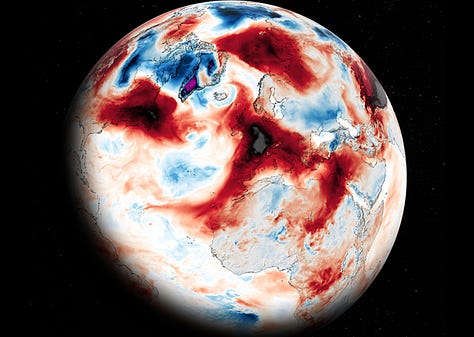

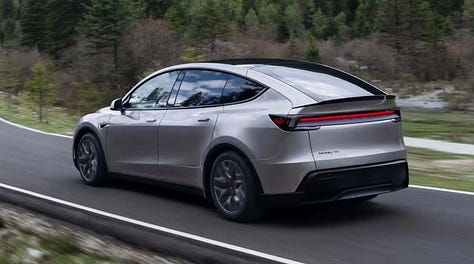
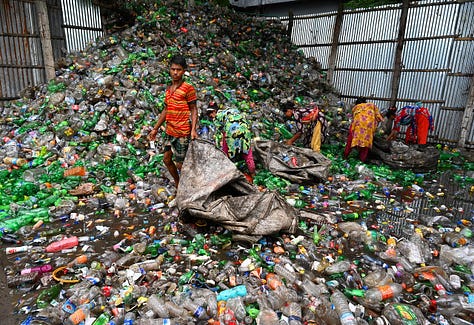
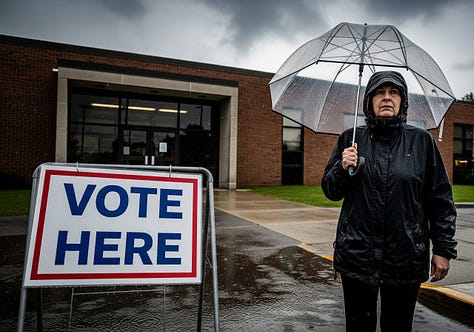
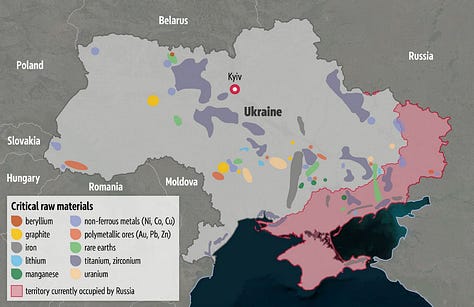
. . . . Welcome back to Green Lights. Here’s our roundup of the best of Callaway Climate Insights. This week, David Callaway says energy companies should pay close attention to what the White House is doing to chipmakers. Mark Hulbert explains new research that shows why investors should play the long game when it comes to the low-carbon transition. Have a great week, stay cool and please subscribe to support our climate finance journalism. We’re having a big sale!
Summer sale alert!
For the rest of this month, leading up to Labor Day in the U.S., Callaway Climate Insights will be available to new subscribers for less than $5 a month for the first year. Take advantage now to get the best of our daily global climate analysis. Please subscribe with our special Labor Day sale offer.
. . . . David Callaway says there’s been some hand wringing and legal wrangling on Wall Street as the White House talks about taking an ownership stake in Intel and other chipmakers, and strong arms Nvidia and AMD into giving up 15% of their sales into China. Big tech’s relationship with government has always been fraught. Not much better with energy companies, dating back to Enron Corp. But this is a treacherous path. CEOs and boards of any and all energy companies — from oil and gas to clean energy itself — should pay attention to what’s happening with the chipmakers. They could be next.
. . . . The great EV sales rush of 2025 is on, thanks to expiring federal tax credits next month. As prices continue to come down, and battery charging becomes more advanced, tax credits and subsidies will become less important. For now though, the ending of the subsidies has caused just the opposite of what the White House as intended — a run on electric vehicles.
. . . . The probability that Congress will pass a carbon pricing bill in 2050 is 9% higher than today. That might seem depressingly modest, given projections of how much hotter the climate will be in 2050. But you may nevertheless find some solace in this study’s implication that the current administration’s backtracking on environmental policy will only be temporary, writes Mark Hulbert, citing a new study from authors at Berkeley and Columbia universities. Voting turnout and weather play a big role.
. . . . The fragile global dance in the past week to move the Ukraine war toward some sort of peace talks belies a rising greed from all sides, including Wall Street banks, for a chance to get at the potential trillions of dollars of minerals buried underneath disputed territory in the war-torn country.
. . . . Shares of large U.S. plastics companies are on the rise after the latest round of global talks to introduce production cuts ended in failure as countries with large oil interests again successfully blocked an international deal. David Callaway says, like with international climate talks, the biggest oil polluters — including the U.S., India, Russia, and China — have been able to stand together to prevent any meaningful deal with plastic, in this case to limit soaring plastic production worldwide.
. . . . Europe, especially the Mediterranean basin, is facing severe heatwaves and large-scale wildfires this summer. Temperatures are rising well above 104°F in many areas, particularly in Spain, southern France, the Balkans and Turkey. The U.K.’s Carbon Brief is predicting this year will be the second- or third-warmest year on record. Europe’s land temperatures have risen about 2.3°C above pre-industrial levels, nearly twice the global rate, intensifying heat waves, says the EU’s Copernicus climate service.
More greenery . . . .
Too hot to handle: Climate change and workplace heat stress: technical report and guidance (World Health Organization)
Who’s asking?: What To Know About Google’s AI Climate Footprint (TIME)
Taking up the slack: What can state governments do about climate change? (Yale Climate Connection)
Not the recovery we were expecting: Ozone recovery could trigger 40% more global warming than predicted (ScienceDaily)
Location, location, location: Climate change forces California grapegrowers to make hard choices (The Mendocino Voice)







